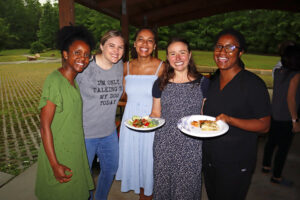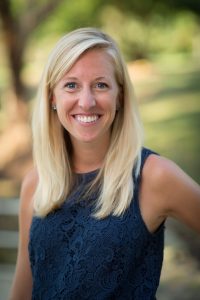About Us

Philosophy
The following basic principles constitute our philosophy of residency training:
- Patients teach. The core of residency training is patient care.
- Residents need exposure to diverse clinical settings and patients. The broader the exposure of the resident, the better he or she will be able to adapt to his or her future practice sites and to changes in the health care system.
- Residents learn a great deal from their peers; the more diverse the group of residents, the better the training environment. We believe that residents benefit greatly from exposure to people with different backgrounds and career goals. We believe in and expect our residents to be valuable contributors to our program, who teach and improve the program at the same time that they are training.
- Residents need a biopsychosocial approach to clinical practice. Comprehensive care addresses both the medical and psychosocial aspects of clinical problems.
- Residents need to develop the habit of critical appraisal. Health care is an ever-changing field and good clinical care is evidence-based. Residents should regularly review the quality of care they provide, and frequently evaluate evidence from published literature.
- Residency training encourages development of independent learners. We believe successful practice requires a problem-focused approach in which the learner defines his/her “knowledge gaps” and takes responsibility for filling them. Our residency curriculum aims to develop residents into successful self-directed learners.
- Family Medicine and Family Medicine training should be rooted in a mission of anti-oppression. We are committed to continually critiquing and honing our systems to ensure that they are advancing us in this mission, so that we may work toward educational and clinical environments that are truly inclusive, diverse, and just.
- Faculty are committed to the development of each individual resident. Being a residency faculty member requires a broader concern for the individual resident and his or her dreams and aspirations.
- We are especially dedicated to embracing change, whether externally or internally driven, as change promotes a never-ending search for excellence. We encourage and expect our residents to be active participants in all changes within our program.
A message from our Program Director

Our Program Director, Mallory McClester-Brown, MD
Welcome! We are thrilled that you are interested in the University of North Carolina Family Medicine residency program. We are proud of our program and the excellent care we are able to provide to the people of our state.
The UNC Family Medicine residency program strives to ensure full scope training throughout the three years of residency education. We aim to prepare our graduates to go out into the world and meet the needs of their community, no matter what those needs may be. Our residents are strong clinicians, excellent teachers, and critical thinkers, much like the faculty that contribute to their development in training.
I am proud to serve as the residency program director in collaboration with our incredible faculty and staff. UNC Family Medicine is a leader in the field of Family Medicine as well as within the University of North Carolina medical community. Chapel Hill is truly a wonderful place for Family physicians to live and work.
If you would like to learn a little more about me, please see my bio.
Thank you for taking a look around. Please let us know if you have further questions. Go Tar Heels!
–Mallory McClester Brown MD, Residency Program Director
